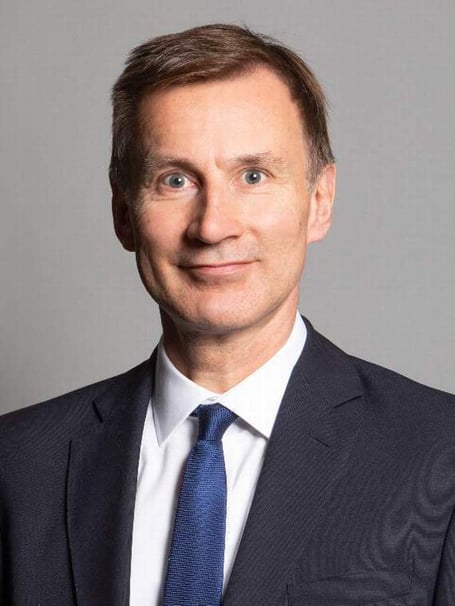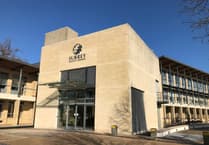ON A balmy autumn day in September 2018 I visited Myanmar as the new British foreign secretary.
I was getting ready to meet Aung San Suu Kyi, at the time the de-facto leader of the government.
Little did I know that just over two years later the military would seize power from her. Even less that this week she would be sentenced to four years in prison on such bogus charges as ‘incitement and breaking Covid restrictions’.
She is still awaiting trial on other heinous crimes such as the unlawful possession of walkie-talkies.
To meet her I travelled to Naypyidaw, Myanmar’s brand- new, purpose-built capital. It had existed only since 2005, when the idiosyncratic military dictatorship at that time decided to move the capital from Yangon (formerly Rangoon) to make a decisive break from colonial times.
Thousands of civil servants were suddenly told to relocate to this supposedly gleaming new seat of government nearly 200 miles away, but compared to the buzz of Yangon it is a ghost town. Characterless modern buildings replace the faded colonial splendour of Yangon.
Instead of the magnificent Shwedagon Pagoda sits a fake replica. Foreign VIPs travel in a motorcade with outriders, entirely unnecessary because the roads are completely empty.
I arrived at the government building and was ushered to the first floor for the meeting. As is common for diplomatic meetings, two armchairs were placed in the middle of a horseshoe of chairs so the two ‘principals’ could sit next to each other.
Their respective delegations then sit in a line on the side closest to their principal. As often happens with friendlier nations, it was agreed I would spend time alone with Aung San Suu Kyi at the start of the meeting to allow ‘chemistry’ to be established.
There was no particular time limit to this first encounter, but obviously the longer it went on, the better the two principals were considered to be getting along.
To break the ice, I told her my mother had been born in colonial Burma. She was the daughter of a chemicals company executive who was sent back to Britain from Burma ahead of the war.
Aung San Suu Kyi seemed to warm to this personal link and asked me how old my mother was and whether she was in good health.
Then to business. I wanted to talk about the horrific genocide the United Nations believed had been perpetrated by the Myanmar army, known as the Tatamadaw, as well as the wrongful imprisonment of two Reuters journalists who had tried to expose it.
With just the two of us there, it would have been easy for her to say something along the lines of, “Like you, I am appalled by what happened. But I can’t control these people, they can take away what power I have at any time so please give me space to try to work out a solution.”
She did not. Maybe she was worried about the room being bugged – but there was no hint of that in her body language.
Instead, both privately and subsequently when our respective officials joined us, she mounted a robust defence of the military.
They too, she said, are innocent until proven guilty and it was quite wrong to jump to conclusions without evidence (despite a United Nations report saying there was plenty of it). She went on to defend their actions in front of the International Court of Justice a year later.
This Nobel Prize-winning democracy campaigner showed herself to be badly and sadly flawed in her willingness to turn a blind eye to brutality.
But an imperfect democracy is better than no democracy at all, as I told Mishal Husain on the Today programme this week. The line between democracy and autocracy is extremely fragile in a developing country like Myanmar.
But disappointed though I, and many others, were about Aung San Suu Kyi’s failure to call out genocide, at least in a democracy such matters can be debated and exposed.
But who is making that argument today? It is time for Western democracies to step up to the plate and make a much more robust case for open societies.
After all, they matter as much to ordinary people in Myanmar as they do to us here in Britain.





Comments
This article has no comments yet. Be the first to leave a comment.